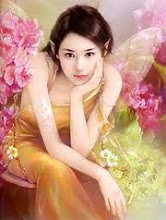Rafflesia arnoldii
the world’s largest flower is from a rare parasitic, rootless and leafless plant. Rafflesia
was first discovered by the Europeans
Sir Stamford Raffles and Dr. Joseph
Arnold in 1816, near the town of Bencooden
in Sumatra. Therefore the this was named as Rafflesia Arnoldii. The first description of Rafflesia Arnoldi was given by Robert brown. This largest
tupe of flower is upto to 1metre
in diameter and weights upto 9
kg .It takes around nine to twelve months for the buds to develop into flowers.
Rafflesia flower is red in color with five leathery and speckled petals. The
centre of Rafflesia flower has a well like structure and inside that well is a
central raised disc with many vertical spines. The Rafflesia flower lasts around five to seven
days and it turns black and rots.
It is a rare species that found only in certain areas of south east asia where
there is much perciptation, particularly prevalent in Sumatra. Raflesia grows to be about a yard
wide and it smells like rotting meat. The horrid odor helps this rare plat to
survive. The foul smell of rotting meat attracts the beetles and flies to
pollinate. The flies and beetles should vsit both the male and female plants for successful pollination. It is a penetrating smell more
repulsive then any buffalo carcass in an advanced stage of decomposition. It is
a parasitic on members of genus Tetrastigma.
Throughout its life it parasitizes on
the host usually tropical lianas. It is hardly difficult to locate this flower
as the buds take many months to develop
and the flower lasts for only few days. This flowers are unisexual.
Rafflesia flower is an
iconic symbol of the southeastern Asian rainforest. It has many uses too. The flower
buds are applies in traditional medicine to promote delivery and recovery
during and after child birth. Rafflesia buds are used by women to stop internal bleeding and shrink the womb after child birth in peninsular
Malaysia. It can be used as a food as in
Thailand young buds of the flower are eaten as a delicacy. Men uses it as an
energy drink or aphrodisiac. Rafflesia flowers are also used in perfumes, decoration
and boques. The buds of Rafflesia
are used to make different concoctions for different purposes.
One has failed
to analyze extensively the chemical
properties of rafflesia yet. Preliminary phytochemical screening however showed no evidence of the
flowers medicinal properties.The buds and flowers are have a high content of
tannin and phenols which can be toxic
when taken in large quantities. The major threat to Rafflesia is loss of habitat as human population clears rainforest. All the fifteen species of Rafflesia are endangered flowers in South East Asia.




















0 comments:
Post a Comment